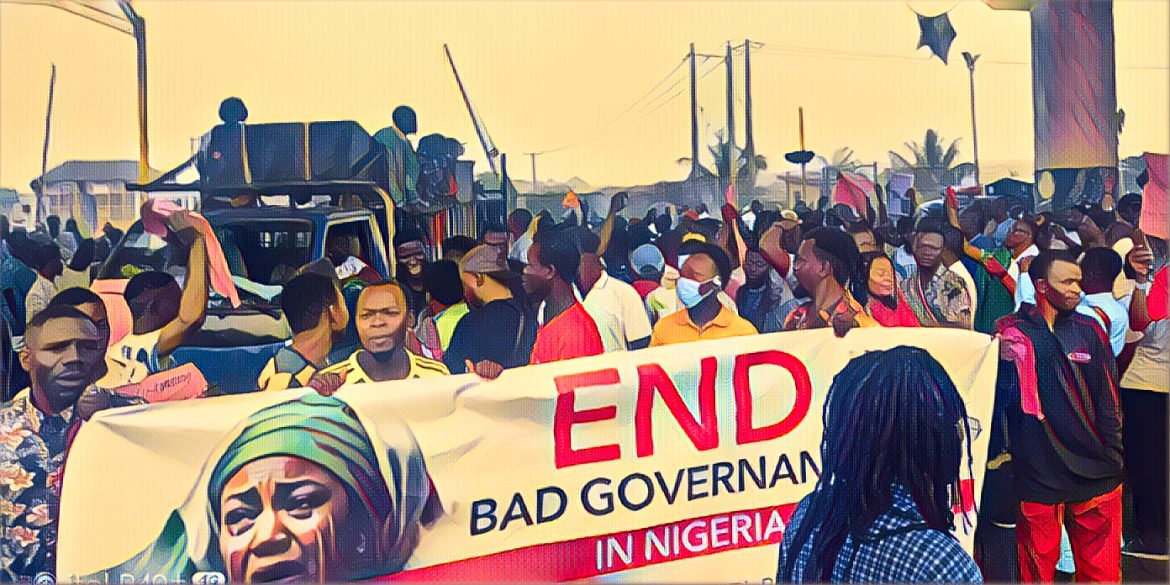On the first day of the #EndBadGovernance protest, Northern Nigeria saw the highest number of casualties. The protest, causing significant unrest in Africa’s largest economy, is a cause for concern. According to a recent report by SBM Intelligence, a consulting firm focused on Africa’s market and security, the violence hit northern Nigeria the hardest.
The report, titled “An August Nightmare: Assessing The Early Days of The #EndBadGovernanceProtestInNigeria,” revealed that out of 30 people killed on the first day of the protest, 29 were from northern states. Borno had the highest number of fatalities, with 16 deaths. This region’s vulnerability is highlighted by its significant multidimensional poverty, affecting 86 million of its population, as reported by the National Bureau of Statistics in 2022.
Northern Nigeria, home to around 70 percent of the country’s population, is facing increasing poverty and a high number of out-of-school children. Most people in this region are subsistence farmers using traditional farming methods. However, banditry and kidnappings have heavily impacted the livelihoods of the northwest and central areas.
From July 2023 to June 2024, the north experienced significantly more kidnappings than the south, with over ten times as many victims. This insecurity has fueled protests, further compounding Nigeria’s already fragile security situation. The report stressed that while economic hardships affect the whole country, they are particularly severe in the north.
Insecurity has forced farmers off their lands and subjected them to multiple taxes by bandit warlords, particularly in rural areas. This has dramatically reduced their agricultural yields, worsening the country’s food insecurity. Nigeria ranks 109th in the 2023 Global Hunger Index, reflecting the dire food situation.
In early 2024, SBM reported that bandits demanded at least N224 million in farm levies across the north from 2020 to 2023. By June 2024, farmers had paid no less than N139 million in such levies. These illegal tolls have made accessing farms difficult, worsening the region’s food insecurity. The report also noted that 1,356 farmers were killed nationwide during this period, with most killings in the north.
Nigeria, Africa’s biggest oil producer, faces its worst economic crisis in a decade, driven by rising inflation and soaring food prices. For the past two years, food prices have been in double digits, significantly affecting the cost of living. High consumer prices have eroded spending power, pushing citizens to the streets to demand better governance.
The protest, which started out peacefully, soon turned violent and chaotic, particularly in cities like Bauchi, Dutse, Gombe, Kaduna, and Kano. The state governments imposed curfews to end the unrest. The SBM report highlights the north’s disproportionate suffering due to the country’s economic and security challenges.


